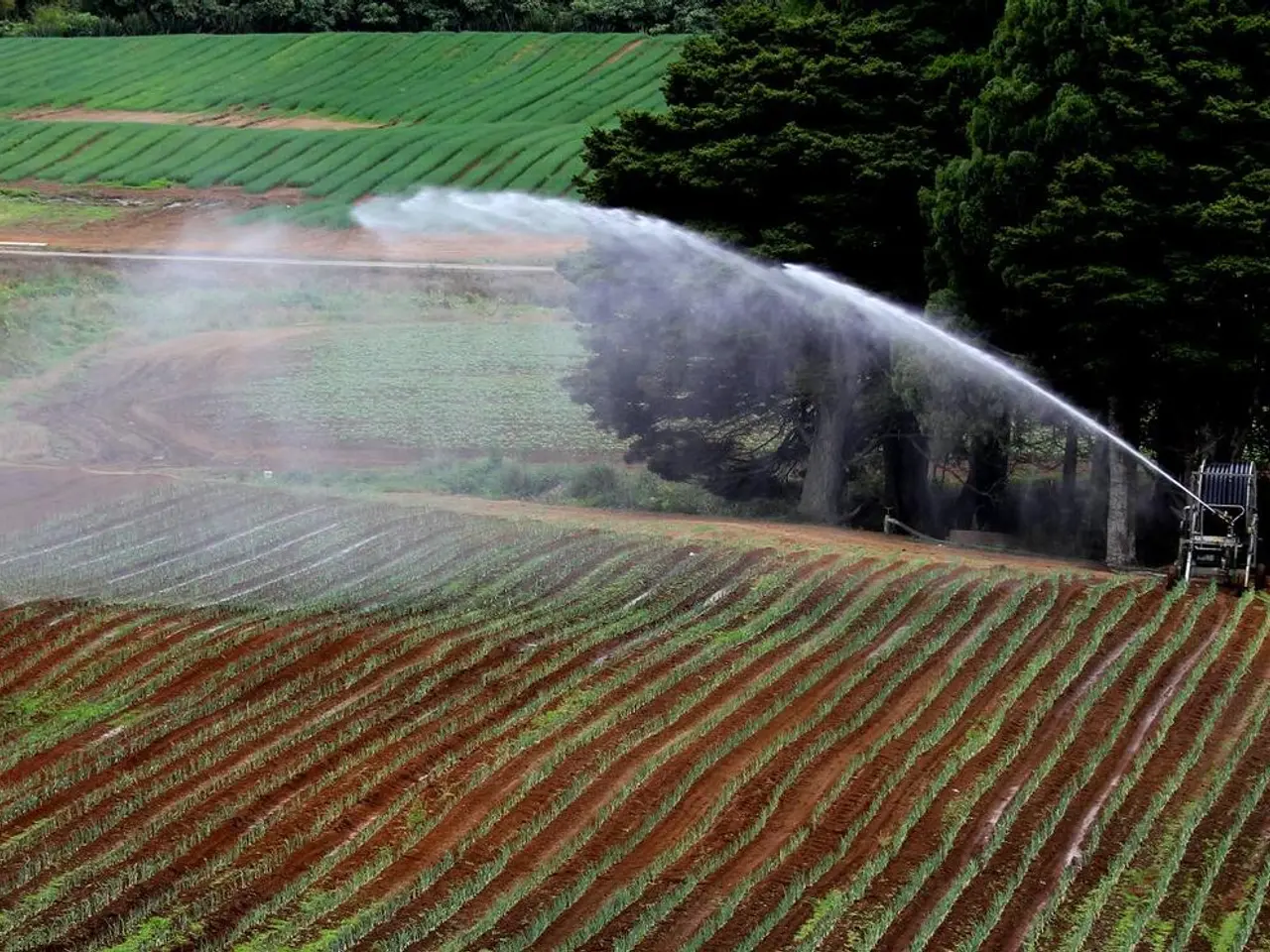Iran's President endorses legislation halting collaboration with the United Nations' nuclear supervision agency.
In a significant turn of events, Iran's decision to halt cooperation with the International Atomic Energy Agency (IAEA) has raised alarm bells in the global community, leading to increased uncertainty about its nuclear activities. This suspension of cooperation, which came into effect in mid-June 2025, has effectively stripped the IAEA of direct oversight and inspection access to Iran's nuclear sites.
The escalation began with Iran's enrichment of uranium to near weapons-grade levels, a move that was reported by the IAEA before the attacks launched by Israel last month targeting military commanders, nuclear facilities, and scientists. The IAEA has since stated that the US strikes on Iran fell short of causing total damage to the program, with Tehran capable of restarting enrichment activities "in a matter of months."
The IAEA, in its report and subsequent resolution, has censured Iran for its non-compliance with nuclear safeguards obligations for the first time since 2005. This resolution has fueled outrage across the Iranian government, who accuse the agency and its director general, Rafael Grossi, of being biased. Iran, in turn, has accused the IAEA of collaborating with Israel and providing a pathway for strikes on its nuclear facilities, an accusation which the agency denies.
Following the Guardian Council's approval of legislation to suspend cooperation with the IAEA, Iranian President Masoud Pezeshkian has ordered the Atomic Energy Organization, the Supreme National Security Council, and the Ministry of Foreign Affairs to begin implementing the law. The exact timing and method of implementing the new law remain unclear.
The implications of Iran’s suspension are profound. Without IAEA access, the international community faces increased uncertainty about Iran's nuclear activities and possible weaponization efforts, undermining transparency and confidence-building. The suspension has also heightened regional security risks, with attacks by Israel on Iranian nuclear sites in June 2025, including the Natanz and Fordow facilities, contributing to the escalating tensions.
The IAEA has condemned such military strikes as threats to nuclear safety and regional stability. Despite multiple rounds of indirect talks between Iran and the US, brokered by Oman, diplomatic efforts to revive limits on Iran’s nuclear program have stalled, especially after the military incidents and Iran’s legislative moves.
With Iran signaling it “will not easily back down from enrichment,” there is a credible risk that Iran may expand uranium enrichment and nuclear capabilities unhindered by international monitoring, complicating nonproliferation efforts. The situation remains volatile, with ongoing military confrontations and stalled diplomacy exacerbating the risks of nuclear proliferation and conflict escalation.
[1] Arms Control Association. (2025). Iran's Nuclear Program: Key Questions and Answers. Retrieved from https://www.armscontrol.org/factsheets/Iran [2] International Atomic Energy Agency. (2025). IAEA Board of Governors Concludes Special Meeting on Iran’s Non-Compliance with NPT Safeguards Agreement and Additional Protocol. Retrieved from https://www.iaea.org/newscenter/pressreleases/iaea-board-of-governors-concludes-special-meeting-on-irans-non-compliance-with-npt-safeguards-agreement-and-additional-protocol [3] Reuters. (2025). Iran halts cooperation with IAEA, barring inspectors from nuclear sites. Retrieved from https://www.reuters.com/world/middle-east/iran-halts-cooperation-iaea-barring-inspectors-nuclear-sites-2025-06-26/
- The global community is closely monitoring the Middle East, particularly Iran's activities, as its nuclear program raises concerns following the suspension of cooperation with the International Atomic Energy Agency (IAEA), leading to increased uncertainty.
- The IAEA, in its report, has condemned military strikes on Iran's nuclear facilities as threats to nuclear safety and regional stability, while accusing Iran of non-compliance with nuclear safeguards obligations.
- Amidst the volatile political and military scenario, the general news, medical-conditions, and crime-and-justice sectors are closely watching the escalating tensions between Iran and Israel, fearing a potential worsening of the situation could lead to war-and-conflicts and proliferation of nuclear weapons.
- As the international community grapples with the implications of Iran's suspension of cooperation with the IAEA, efforts to revive limits on Iran’s nuclear program have stalled, and the risk of Iran expanding uranium enrichment and nuclear capabilities unhindered by international monitoring remains a significant concern.








